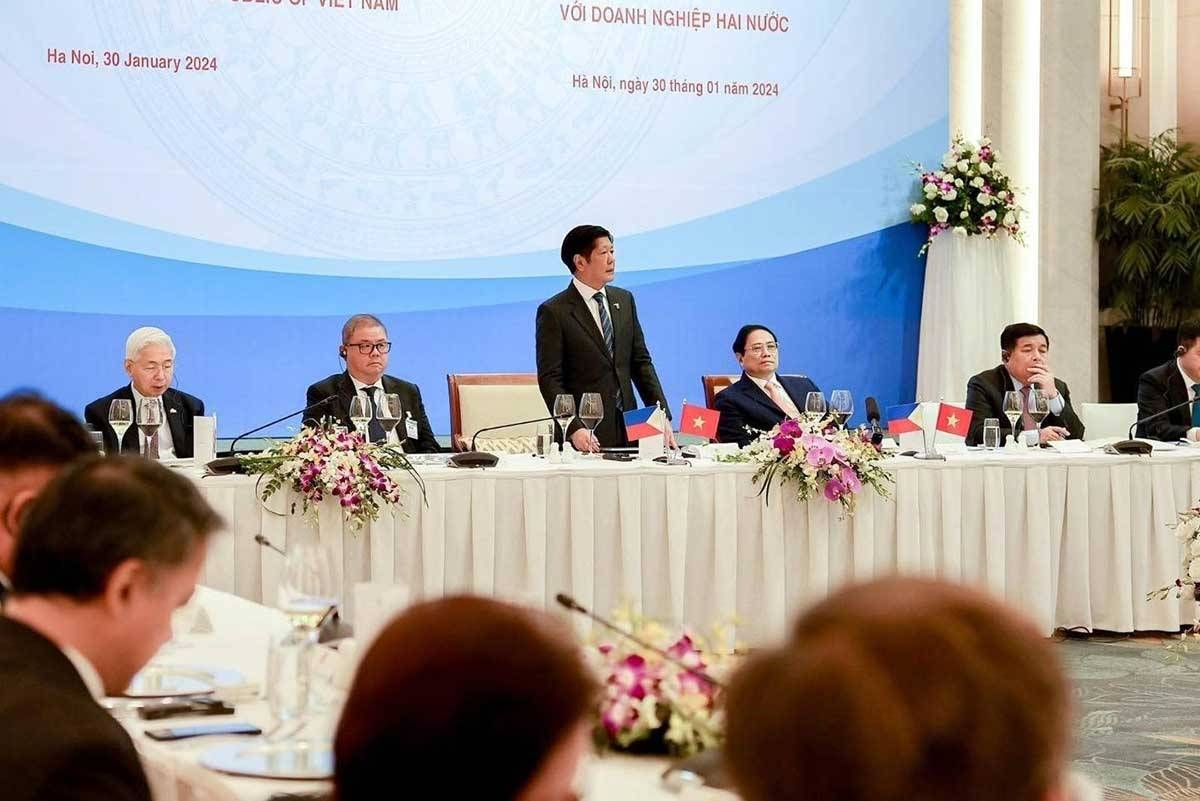President Ferdinand Marcos Jr. has announced his intention to establish a separate code of conduct (COC) on the South China Sea (SCS) with Vietnam. During his visit to Vietnam, President Marcos expressed confidence in the progress made towards this initiative, stating, “We’re pretty much there.” The South China Sea is a region where multiple countries, including Vietnam, Brunei, Malaysia, and the Philippines, have overlapping territorial claims.
President Marcos cited the need for a bilateral agreement due to the unfinished COC between the Association of Southeast Asian Nations (ASEAN) and China. The aim is to ensure a peaceful resolution of disputes over the territory. By establishing a COC among ASEAN members, such as the Philippines, Vietnam, Brunei, and Malaysia, potential problems between these nations can be addressed without relying solely on the ASEAN-China agreement.
President Marcos expects the Philippine-Vietnam COC to be completed within this year. This agreement is part of a memorandum of understanding between the two countries’ coast guards, which also includes joint cruises and exercises. The President emphasized that the purpose of this bilateral maritime agreement is to prevent any violent confrontation and maintain peaceful relations.
Despite territorial disputes in the South China Sea, President Marcos highlighted the absence of violent confrontations between the Philippines and Vietnam. He emphasized that conflicts have remained at the diplomatic level and have not escalated into violence. The bilateral arrangement between the Philippines and Vietnam aims to provide a clear framework for resolving any potential issues and avoiding any escalation.
During his visit to Vietnam, President Marcos also discussed economic cooperation between the two countries. He announced that Vietnamese firms have expressed interest in expanding their operations in the Philippines and exploring collaboration in various economic activities. Notably, Vingroup Co. has shown interest in expanding ventures in artificial intelligence.
President Marcos assured Filipino businesses operating in Vietnam that their interests are being safeguarded. He emphasized that the government has provided a platform for these businesses to voice their experiences, plans, and challenges at the highest level. The Philippine government stands ready to support these businesses in competing in foreign markets.
President Marcos’s meeting with Vietnamese President Vo Van Thoung further strengthened the bilateral relationship between the Philippines and Vietnam. The two leaders discussed various areas of cooperation, including defense, maritime affairs, trade and investment, economics, education, tourism, and culture. Several agreements were exchanged, covering areas such as rice, agriculture, culture, and maritime cooperation.
The Philippines and Vietnam have a longstanding diplomatic relationship, established on July 12, 1976. In 2015, they elevated their relations to a strategic partnership, demonstrating the importance they place on their bilateral ties.
In conclusion, President Marcos Jr. is actively working towards a separate code of conduct on the South China Sea with Vietnam. This initiative aims to address territorial disputes and prevent potential conflicts. The Philippines and Vietnam are also strengthening their economic and diplomatic ties, with Vietnamese firms expressing interest in expanding their operations in the Philippines. Overall, these efforts contribute to regional stability and cooperation in the South China Sea.







